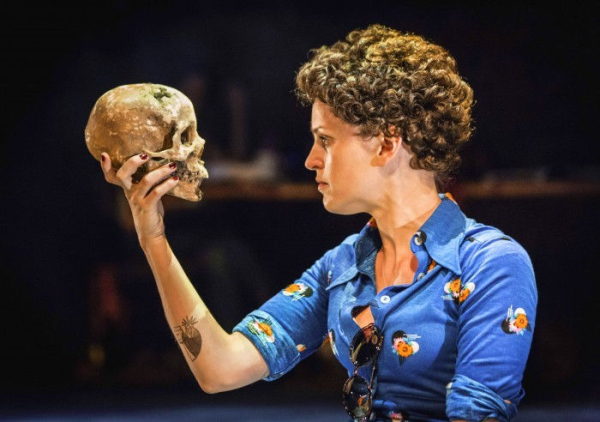Catherine Love: In praise of confusion
There’s always a place for carefully crafted narrative, but why are we so keen for theatre to make sense all the time?

© Johan Persson
In both instances, I'll happily admit to bafflement. There are plenty of ideas to wrestle with in these two shows and plenty I have to say about them, but I would struggle to confidently pin down what they are "about". And that, for me, is part of their appeal.
Writing for The Stage, theatre critic Matt Trueman has accused many of the most critically acclaimed new plays of recent months, including Incognito and King Charles III, of being too schematic. "All audiences need to do is decode," Trueman argues. "Listen for echoes or repeated words, join the dots and – voila – there’s your theme." This "join the dots" school of writing is certainly not something that either Bailey or Crouch could be considered guilty of.
“Confusion is an underrated response in British theatre”
“Confusion is an underrated response in British theatre”
Yet for many critics, confusion seems to be anathema. Dominic Cavendish in the Daily Telegraph is frustrated by the answerless "game" of Crouch's "coolly cerebral" piece, while the Evening Standard's Henry Hitchings criticises Adler & Gibb for being "painfully cryptic". Mark Shenton, meanwhile, is at least admirably honest about his baffled response to Crouch's play in his blog for The Stage, admitting "critical defeat". Bemusement was similarly a criticism of several of the more negative reviews of Mr Burns at the Almeida – though in that instance it perhaps had as much to do with a lack of familiarity with The Simpsons as anything else.
While there is a lot to be said for meticulously crafted plots and big narrative pay-offs, however, I'd argue that confusion is an underrated response in British theatre. That's not to suggest that all confusion is good confusion. But in the same way that I don't watch David Lynch films to make sense of their tangled, labyrinthine storylines, some of the best theatre I've seen has left me a little perplexed and itching to go back for a second viewing. I think of Sebastian Nübling's thrillingly visceral production of Three Kingdoms, or the breathtaking succession of images in Dmitry Krymov Lab's Opus No 7.
Of course there's a certain satisfaction involved in "getting" a show, but for me there's even greater pleasure to be found in really chewing something over, even if its theme or plot ultimately remains elusive. When I walk out of the theatre, I'd much rather be furrowing my brow than smiling smugly.












